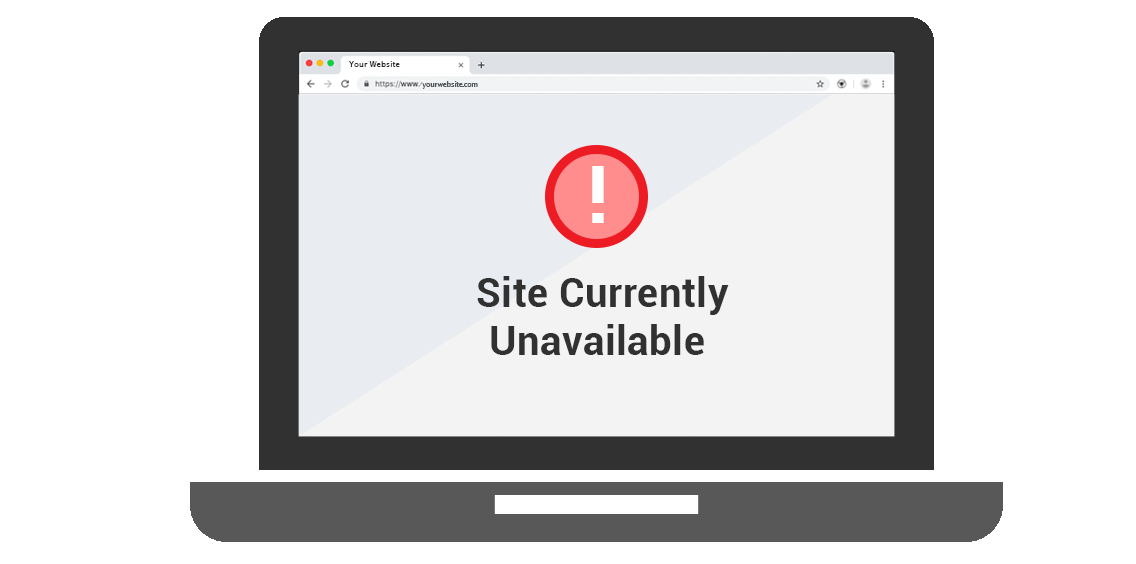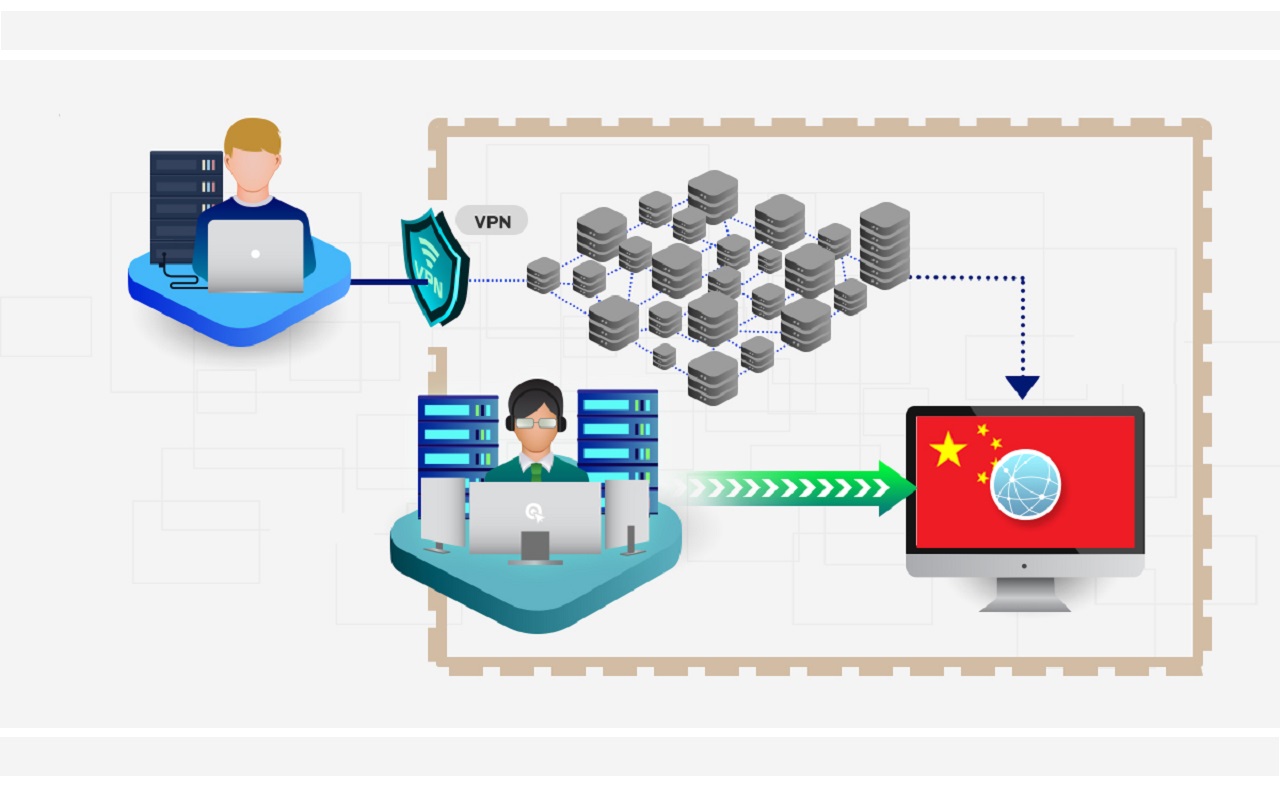One of the most common requests that we get from our clients is a panicked plea for us to help them unblock their website in China. Typically, this comes from feedback from their Chinese-based visitors that the site simply isn’t working and the assumption is that the Chinese firewall has blocked it.
While this may be true in some circumstances, it’s a lot less common than you realize. The more plausible explanation for this is that the site is just loading much slower than it should be and it gives a visitor the illusion that the site isn’t working. In this article, we’ll explore this more fully and help you improve your site speed in China so that you aren’t losing out on business as a result.
Unpacking the problem: misaligned expectations
Before we get to the solutions, let’s examine the problem a bit more carefully. Typically an internet user in China will expect a website to load in less than two seconds – even with a slow internet speed. This norm is ingrained in the user experience and has set the bar when it comes to speed expectations.
However, the vast majority of non-Chinese websites (around 90%) take five seconds or longer to load in China. As you can imagine, this results in many visitors clicking away before the site has had a chance to load. The assumption often made is that the site is blocked entirely – and your visitors will then move on to a competitor. Those couple of seconds are crucial in the modern age where consumers demand immediate gratification.
Slow loading is the most common reason that visitors bounce from your site and it's much more sensitive than many of us realize. All it takes is a small gap between expectations and reality, and you can lose all of your credibility. In other words, if your website is too slow – then it might as well be blocked. The end-user experience is functionally the same.
Why is your site loading so slowly in China?
This is a complex question to answer and there is a variety of potential reasons why your site may be loading slowly. Let’s talk about some of the more common ones:

The Great Firewall of China (GFoC) has been set up to regulate internet usage domestically and as such, they have complete control over how your website is displayed to locals. Depending on how your content is perceived, which IP address it's coming from, and a variety of other factors – the loading speed can vary significantly. In effect, the Firewall is going through a process of deep package inspection, analyzing the incoming data for various criteria, and then deciding whether or not to serve that content to the end-user. The increased latency created by this process tends to be the reason that the site loads so slowly. Even with all the traditional speed optimizations that you might try to work into the code itself, this key bottleneck is difficult to maneuver around.
As the internal systems continue to monitor foreign websites, they have a good grasp of the blocks of IP addresses that come from key global providers such as Google and the like. As such, if you are hosting your website outside of the country, your IP address will betray that fact and you’re much more likely to have this slowing effect applied to your site.
When talking about "the last mile connectivity", we mean those local ISP providers. The connection speeds vary dramatically depending on the location in China. The geography is incredibly expansive, and there are only 3 service providers. The state owns these entities, and they hold a monopoly in the specified markets. Connection speed also depends on the location. Considering the lower number of providers, users in China often experience bottlenecks while connecting to sites hosted in foreign countries.
There are a few things you may want to pay attention to when hosting locally in China, read more: A guide to web hosting in China
The other component relates to your actual content. There are several sensitive topics that local infrastructure strives to weed out of the domestic informational landscape. If your website touches any of these topics, you’re likely to face increased scrutiny from the firewall and can lose speed as a result. Sometimes this can even be incidental because you make use of a certain keyword that has alternate connotations. The room for error is small here.
Read more about: How great is the Great Firewall in 2022: methodology of DNS censorship
What makes this even more difficult is the fact that blocking in China can be regional and can be time-sensitive. The rules are constantly changing and you’ll never know that you’re blocked or affected unless you’re doing regular testing to monitor the status of your site. The goalposts are always moving makes this a challenging proposition.

How do you improve your website loading speed in China?
Now that we have a good grasp on what we’re dealing with, let’s look at some of the viable solutions.
- Host your site in China.
Having your site hosted locally helps to get around a lot of the IP address blocking that tends to affect so many foreign sites because the traffic is coming from inside the mainland itself. Your data will have to go through fewer obstacles and should be much faster as a result.
However, doing this requires an ICP license which is not easy to obtain. This license legalizes your website in China and puts you on an even footing with other local operations. Just getting the license can take a very long time and there are a wide range of different hoops that you’ll need to jump through. This means that it’s not always a feasible option for many companies.
- Implement a China CDN solution.
If you are already hosting your site in China, you can gain a lot of additional speed by using a Content Delivery Network (CDN) to decentralize your hosting and reach the wider expanses of the country more quickly. This means that you have better coverage across all Chinese cities and you benefit from major speed improvements because the data is traveling much shorter distances.
Of course, this is dependent on already having secured an ICP license as we discussed above

- Monitor your website through regular testing.
It’s impossible to fix a slow website problem if you don’t understand exactly what the actual user experience is. As such, regular testing and monitoring are paramount so that you can action the right optimizations. You should be doing both manual testings where actual humans work through your website, and you should be using synthetic testing where code is used to test various aspects of a website’s performance.
This testing helps to identify the key bottlenecks and can give you the insights you need to make improvements. The key piece of course is that your testers need to physically be in China for this to work. That’s the heart of the GoClick China offering and if you’d like to explore more, you can click here.
- Optimize for local web and mobile browsers.
As with all website optimization, you want to make sure that you’re meeting your visitors where they are. You can get much-improved results by optimizing your site for China-specific browsers both across desktop and mobile. This will remove as much friction as possible and give ensure your site the best possible chance to load efficiently.
To assist with this, we recommend cross-browser testing to compare how your site loads on different browsers. This information can be vital for narrowing your focus and improving your local performance, especially with popular browsers like UC Browser and QC Browser. We’ve written about this in detail in the past, so check that out if you want to dive deeper here.
Want to check how your website performs on the local browsers?
Send us your domain and get a testing report for FREE.
- Monitor performance on Chinese-specific mobile devices.
Similar to the point above, we also want to optimize for the specific devices that Chinese locals are using. The market looks very different here to the rest of the world and many companies forget that. By monitoring your website’s performance on uniquely Chinese devices, you’ll have a huge advantage over those companies that don’t appreciate the cultural and economic nuances in the Chinese market.
The only way to do this is to have local testers on the ground who can run various diagnostics and report back on the results. This is where having a local partner can make such a big difference to your ability to gather the right performance information on your site.
Read more about mobile apps in China: How to distribute your apps to Chinese mobile users?
Conclusion
We hope that this article has brought to light some of the additional considerations that you should be aware of when looking at your website’s performance in China. There is nothing black and white about the Great Firewall of China. It’s not only a question of whether your site is blocked or not but more importantly – is your site loading fast enough to be relevant.
Before you go running to find a solution for blocked sites, take a look at your speed performance. You’ll likely be surprised by what you discover. If your site is not up to par when compared to other local Chinese sites, you’re never going to be able to compete.
Of course, here at GoClick China, we are always here to help you do exactly that. If you’re looking for assistance in terms of monitoring and testing, be sure to check out our wide range of services. And if you’ve enjoyed this article, be sure to share it with others or dive deeper into some of the other pieces that we’ve written.



